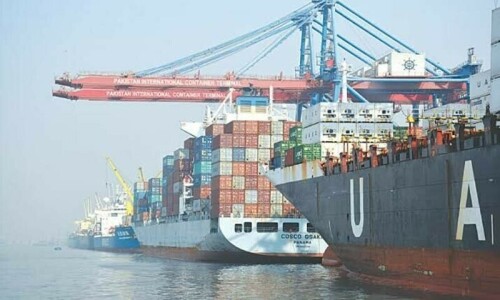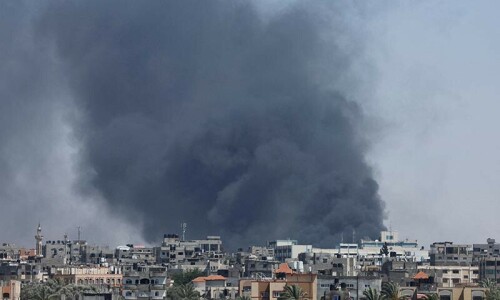KARACHI, Aug 6: In the last fiscal year ending in June 2005, net remittances from overseas Pakistanis rose to $4.153 billion from $3.826 billion a year earlier, thus showing an increase of 8.5 per cent. These remittances were larger than what overseas Bangladeshis sent back home during this period. But the fact that remittances from Bangladeshis to their home country showed a faster rate of growth offers some food for thought.
In their last fiscal year which also ended in June 2005, overseas Bangladeshis sent home $3.851 billion up 14 per cent from a year earlier remittances of $3.372 billion. An analysis of remittances data downloaded from the State Bank’s and Bangladesh Bank’s websites show that Bangladesh attracted the bulk of remittances from Saudi Arabia, UAE, UK, Kuwait and USA.
Barring Kuwait the other four countries also account for the bulk of overseas Pakistanis remittances. As is evident from the data, Bangladesh not only showed a faster growth rate in remittances in FY05 than Pakistan did, it also came closer to Pakistan in terms of generating remittances. Like Pakistan, Bangladesh too had started witnessing a surge in remittances from its expatriate citizens after the September 11, 2001 terror attacks on the US. But initially the volumes of remittances flowing towards Bangladesh were far smaller than those being attracted by Pakistan.
The last fiscal year’s data shows, however, that the trend is changing now.
Senior bankers and officials of exchange companies say that the reason why Bangladesh is attracting larger volumes of remittances is that it has been more successful in minimizing informal handling of remittances than Pakistan. Besides, more Bangladeshis continue to find overseas jobs than Pakistanis.
A comparison of the remittances’ data of Pakistan and Bangladesh show that in the last four fiscal years, overseas Pakistanis have sent home $14.5 billion. Bangladeshis having sent home $13.3 billion seem to be catching up with Pakistanis.
Given the fact that Pakistan’s economy is much larger than that of Bangladesh and considering its growing need for foreign exchange inflows to sustain a high rate of economic growth and lower external debt burden, Pakistan must endeavour to achieve a faster growth rate in its expatriate workers’ remittances.
And to do this, it also needs to keep an eye over its competitors. Bangladesh is its main rival in this area with its workforce being one of the cheapest in the region and its banking system more efficient than that of Pakistan in handling remittances of expatriate citizens.
If Bangladesh is catching up fast with Pakistan in generating foreign exchange through its expatriate workers’ remittances, that itself is good for BD as well as for this region. But the fact that Pakistan’s overseas workforce is made up of more skilled workers and professionals than Bangladesh’s is, means Pakistan is still getting lesser foreign exchange from overseas Pakistanis than it can actually receive.
There is almost a consensus among central and commercial bankers and executives of foreign exchange companies that Pakistan can generate $6-8 billion remittances from overseas Pakistanis. But what keeps the official inflow of remittances far lower than this level is that much of the same finds it way into the country through illegal and informal modes of transfer including hundi or havala. The SBP has recently warned exchange companies allegedly involved in this business and has also taken some actions against some of them. The central bank needs to do more on this front.













































Dear visitor, the comments section is undergoing an overhaul and will return soon.